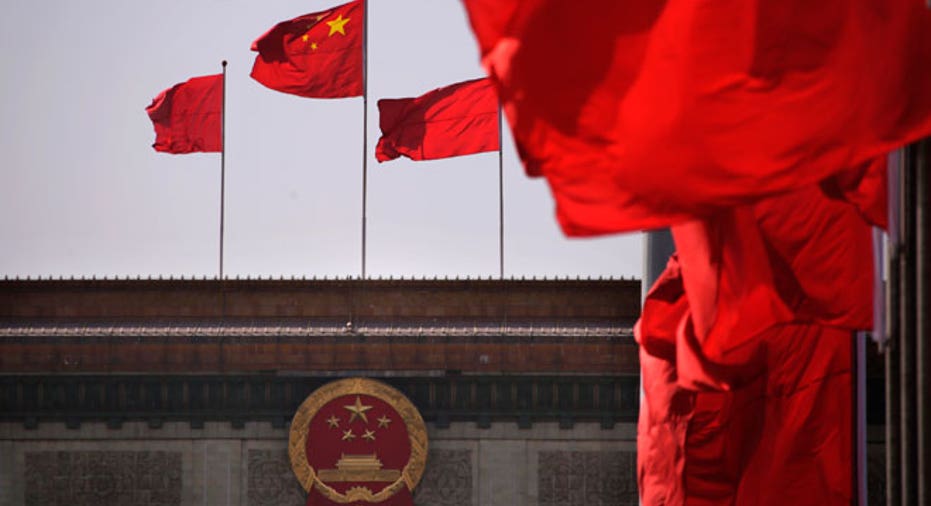China Shares Wipe Out 2015 Gains as Stocks Drop 8.5%

Chinese stocks plummeted Monday, erasing gains for the year, as fears about the deepening effects of a slowdown in the world's No. 2 economy rattled investors world-wide. Stock markets slid across Asia and a number of regional currencies fell to fresh multiyear lows. China's main stock index, which closed 8.5% lower on Monday, has tipped into negative territory for the year after gaining as much as 60% through its June peak. Benchmarks in Japan and Australia both shed nearly 4%. At the heart of the selloff is the concern that the once-highflying Chinese economy may be slowing down dramatically, which has triggered steep losses in global stock markets, commodities and emerging markets. China's surprise move to devalue its yuan two weeks ago -- which could make its exports more competitive -- and a string of weak data signal the economy may be feebler than expected, despite a campaign to rev up growth including interest rate cuts and measures to boost lending. Traders are looking to China's next easing move after The Wall Street Journal reported that the central bank is preparing to flood the banking system with liquidity to increase lending. While some economists say that China still has plenty of levers to pull to get its economy back into gear, the lack of official action over the weekend spooked investors Monday morning. "The trigger was China," said Nicholas Teo, a market analyst at CMC Markets in Singapore. "It is no longer the factory of the world but a huge consumer of the world's products," which is sparking worries for global firms with business there, he added. The Shanghai Composite closed down 8.5% at 3,209.91, bringing its losses since its mid-June peak to nearly 38%. At that point, the index had doubled in value over the preceding 12 months.
!function(d,s,id){var js,fjs=d.getElementsByTagName(s)[0],p=/^https:/.test(d.location)?'https':'http';if(!d.getElementById(id)){js=d.createElement(s);js.id=id;js.src=p+"://cdn1.findthebest.com/rx/widgets.js";fjs.parentNode.insertBefore(js,fjs);}}(document,"script","ftb-widgetjs");
China's small-cap stocks have also been battered: The Shenzhen benchmark closed down 7.7% on Monday, breaching the worst point of its summer selloff for the first time. Some 1,968 stocks fell by the maximum 10% allowed by regulators on the Shanghai and Shenzhen markets combined, or 68% of all stocks in China, according to Wind Information Co. Among the hardest hit stocks in China were brokerages, which helped spur a yearlong rally by funding stock buying on borrowed money. Citic Securities Co., one of China's biggest, limited down Monday and has fallen more than 50% year to date. Hong Kong's Hang Seng Index was last down 3.9% at 21,543.02 after slipping into bear-market territory last week, defined as a drop of more than 20% from a recent high. A benchmark of Chinese firms listed in Hong Kong is trading below the 10,000 level, its lowest since May 2014, and was last down 5.2% at 9,665.62. Elsewhere in the region, Japan's Nikkei Stock Average was down 3.2%, Australia's S&P ASX 200 was off 3.4% and South Korea's Kospi was down 2.1%. Taiwan's Taiex , Asia's worst performing stock index year-to-date -- having shed 22% in that period -- fell 6.2%. The regional MSCI Asia Pacific stock index, was down 16% from its April peak, which was its highest since the global financial crisis, in U.S. dollar terms as of Friday. It is now trading at its lowest level since February 2014. In currencies, losses accelerated as nervous investors pulled out cash. The Malaysian ringgit fell to a fresh 17-year low against the U.S. dollar and led losses. The Thai baht fell to a six-year low while South Korea's won fell to a four-year low, each against the U.S. dollar. The jitters have pushed investors to sell assets from stocks to emerging-market currencies and high-yield bonds, while scooping up haven assets such as U.S. government bonds. The selling has picked up from Friday in the U.S., where the Dow Jones Industrial Average lost more than 500 points and moved into correction territory, defined as a 10% drop from a recent high. Read: This might be the correction investors are looking for (http://www.marketwatch.com/story/this-might-be-the-correction-investors-are-looking-for-2015-08-22) "The global tone towards emerging markets is getting worse and [investors'] risk aversion is broadening," said Rajeev DeMello, head of Asian fixed income in Singapore at Schroders, which has $487.4 billion under management. The ringgit spiraled weaker after Swiss authorities opened a criminal probe into the relationship between "suspicious transactions" in the country's banking sector and a troubled state investment fund, 1Malaysia Development Bhd. It fell to as low as 4.2590 against the U.S. dollar. The ringgit is down almost 22% against the U.S. dollar so far this year. Indonesia's rupiah weakened to as much as 14,000 against the U.S. dollar, a fresh multiyear low, while the Philippine peso fell to its weakest in almost five years. The Chinese yuan traded offshore fell to 6.4713, down 0.3% while Singapore's dollar was down 0.6%. Asian bond prices fell but modestly by comparison, with heavier selling in high-yield corporate debt, including Chinese property and Indonesian companies. But if the rout continues investors could start turning to their more-liquid assets to cover losses or meet margin calls -- when brokerages ask borrowers to add more money to their trading accounts or to unwind their bets if the market has fallen below certain thresholds. "If the stock rout continues, that will create a systemic selloff as investors will need to raise cash to cover margin calls amid equity falls," said Ben Sy, Asia head of fixed income at J.P. Morgan Private Bank in Hong Kong. "Fixed income is the only area for them to raise cash." U.S. oil prices tumbled, with WTI crude futures falling 2.5% to $39.42, extending losses after falling below the $40 mark for the first time since 2009. Brent , the international benchmark, fell 1.9% to $44.62. It is down 21% year to date.



















